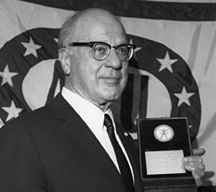|
The Olympic Games have long been used as a political tool,
especially as a tool of global publicity and to give a good
political image. Historically, in 393, Theodosius the Great
banned the Games because there was too much bribery and corruption
going on and the Games did not return until 1896. More recently,
the 1936 games in Berlin were choreographed by the Nazi Party
as a form of propaganda showing German superiority.
 Former IOC president Avery Brundage aimed to "separate
sport from politics". Sadly it seems that countries
will aim to use their teams as a tool, rather than an example
of what they can achieve. This inability to separate sport
from politics can be traced back over almost the entire history
of the Olympic Games. Former IOC president Avery Brundage aimed to "separate
sport from politics". Sadly it seems that countries
will aim to use their teams as a tool, rather than an example
of what they can achieve. This inability to separate sport
from politics can be traced back over almost the entire history
of the Olympic Games.
Find out more in this section:
The Olympic Games have, over time, become irreparably intertwined
with politics. This is seen both through the use of the games
as a political tool by governments, political pressure groups
and terrorists. In many cases the political events surrounding
the games have often overshadowed the sporting achievements
of the game themselves.
This means that the games have effectively become more of
a publicity and media tool, than an environment for sporting
competitiveness. The IOC has long sought to separate sport
and politics, but more recently the IOC has aimed to increase
its political influence. In recent years it has taken a much
more active role in negotiations, as well as forming partnerships
with the UN. The IOC use the ancient Olympic ideals a basis
for peace and cooperation between all countries. This can
be seen in the recent ratification of the Olympic truce.
Globally, the IOC has relatively little political influence
as the major governments are at liberty to deny its support.
At the moment the IOC are unable to host and enforce peaceful
negotiations between countries, however as they IOC develops
its political skills, we may see it having a greater influence
in the future.
|


